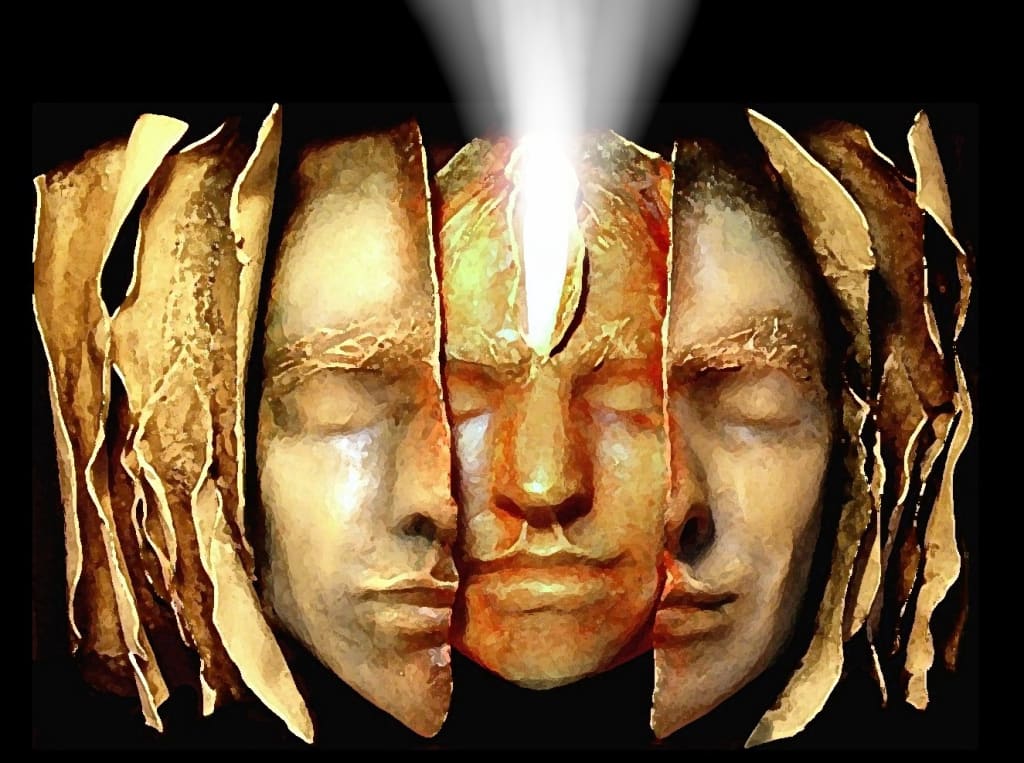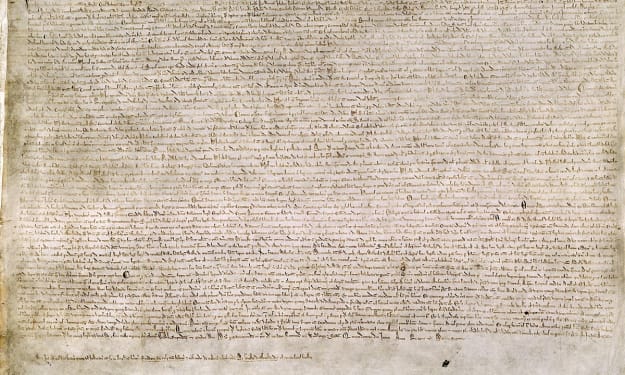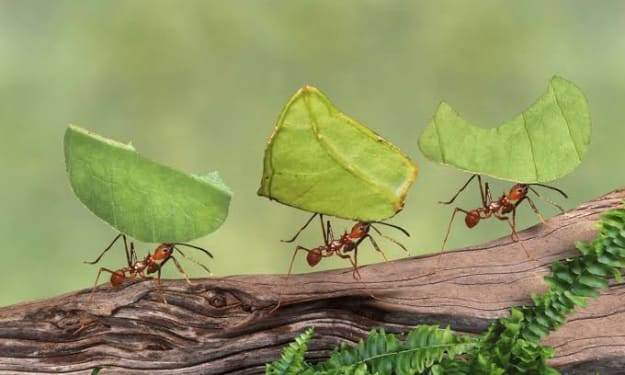Nature of Destruction
Is Our Humanity a Defect?

The Earth is 4.5 billion years old (assuming you hold true to science and believe in the evolution of the cosmos), and, if stretched out over a mile, then the 6,000 years of modern human history would encompass less than one-eighth of the final inch. Yet, in those six millennia, the human race has accomplished wonders unlike anything the world has ever seen… but it’s also committed acts so heinous that it makes us wonder if we truly are a benefit to this planet that we call home. How is it then, in all of the millions and billions of years of Earth’s existence, that a species of animal has arisen to cause so much strife and despair in the face of so much wonderment and ingenuity? Why are humans such a dichotomy of good and evil, of love and hate, of the simple and the complex?
The story is long and exhausting, and it will certainly not be told at length, or in its entirety, in this discussion. But a good place to start it lies with what I was told during the conversation that led to this essay. The human condition was presented to me as a ‘defect’. Does that mean that the human species is defective life? That’s a pretty bold statement, right? I found, however, that the answer was, indeed, “yes”. Remember the scene from The Matrix, where Agent Smith is speaking to his prisoner, Morpheus, and Smith identifies humans as “a cancer” to the planet. Cancer cells are the result of mutated human cells that grow and overwhlem the human body, eventually, in many cases, causing death. These cells are, in a manner of speaking, ‘defective’. And many of the scenarios that lead to humans contracting cancer are the result of their lifestyle choices.
Now, I know what you’re thinking, “You’re saying that the human species is defective? You’re out of your mind!”
Am I? We can easily see the stunning progress we’ve made as a species, but can anybody honestly say that the progress has not been invasive? While we promote ourselves through technological marvels that make our extended lives easier, we have destroyed much of what this planet once was. You can see that in metropolis after metropolis, the dwindling forests, the dwindling species of other plants and animals. And those are the things we don’t really care about. Look at what we do to each other… much of that is done out of greed or hatred, driven by religious belief. So, yes, I’m going to agree that the human race is defective. Not a single one of us, no matter how altruistic and kind, has been able to escape the defective nature of the human condition. The question is, where did it all start?
Let us start well back in prehistory, when human anscestors first chose to commune. During those times, the Earth was the giver, it provided sustenance and shelter. Without it, the death of those early hominids would have been all but assured. As the ages wore on, those same hominids gave reverance to the female of the species, as the life-givers. In trying to understand their world, early human species turned to matriarchal societies devoted to the ‘Earth Mother’.
None of this, though, would have happened without one big development. I note it as the “Prometheus Moment”, and it was when our anscestors learned to control fire. It is thought that fire had two critical effects on early humans: 1) it allowed for them to cook their meat and provided our ever-growing brains critical protein to grow even more; 2) that staring into the flames allowed our anscestors to have waking dreams, essentially. It is the daydreaming that, it is theorized, had the greatest effect. How many times have you sat before a fire and just let your mind wander? Not only do you question the large and the small, but you plan for the future, you run through ideas, and you begin to anticipate the world around you. With this one ability, humans were irrevocably changed. We developed weapons, we gathered in larger and larger societies, and, eventually, reached a point where the Earth itself was not the sole arbiter of our lives.
As the developments gained steam and civilization moved into the Age of History, the physiological advantages of the males became the crux of idolization. Societies morphed from matriarchal to patriarchal, and masculinity overtook all walks of life, including religion. It is here that we begin to see the most powerful of polytheistic and monotheistic religious entities being male. The rest is, well… history.
Six thousand years later, our world is full of war, hate, and greed. The wealthy are elevated to idol status, nowadays. Hate is plentiful between the races, between the sexes, and between mankind and nature. And since those long ago days, war has been a constant more than anything else in this world. Of course, there are a great number of homo sapiens that are thoughtful, loving, and fighting to help, support, and uplift their fellow man. Unfortunately, that great number is not the majority. No clearer can that be seen than in the governments of the world, and the passionate followers of those governments who also tend to fold their religions into all of it.
It seems, in most of history, that organized religion is a central figure in much of the horrible happenings committed by our species. And it’s our planet and ourselves that we have put at extreme risk. Certainly, we are not the only species in the whole of the Universe, or even the Milky Way Galaxy, that has become technologically capable of destroying itself many times over. What’s even worse than that, however, is that, despite our civilization’s understanding that nuclear destruction is a bad thing, we continue to destroy our ecology through more conventional ways… pollution.
And here’s the thing… We are not destroying the planet. Earth has been around for 4.5 billion years and has been through much worse than us. The planet will be fine! Once we destroy ourselves, Earth will heal itself in the blink of a geologic eye. Our legacy will be nothing more than a scar upon the face of this immense world. We are not destroying the planet, we are simply changing it to a point that it will refuse to support us.
“We’re not gonna make it are we?… Humans, I mean,” said John Connor to the Terminator, his expression bordering on defeat.
The cyborg, still bent over the engine beneath the open hood, turned his gaze upon the children fighting with their toy guns. “It’s in your nature to destroy yourselves.” The words were clinical and emotionless. A machine whose purpose was to kill humans explaining how humans could easily put it out of a job was ironic on an entirely new level.
- Terminator 2: Judgement Day, 1995
Have I answered the questions from the introduction? Honestly, I don’t know. But the greatest irony of all is that being able to control fire, it’s only purpose to destroy, led our kind to evolve full-fledged sentience and awareness to such a degree that we are now destroying ourselves. what is the ‘defect’? Is it sentience? Is it self-awareness? Everything goes back to those two concepts. All other species on this planet have varying degrees of both, but we seem to have maxxed out.
There is another film I’d like to reference, one that I’ve only seen parts of, and it’s titled Lucy (2014). In the film, Scarlett Johannson plays a woman named Lucy, and, in the near future, she ingests a synthetic drug shich leads to her being to access an ever-increasing percentage of her brain power. There is a scene with Morgan Freeman, who plays a professor of neuroscience, in which Lucy tells him that she is at 28% usage of her capacity. At this point, she explains, she is replicating her cells at a phenomenal rate and that there is nothing that she cannot understand. However, “I don’t feel pain, fear, desire. It’s like all things that make us human are fading away. It’s like the less human I feel, all this knowledge about everything, quantum physics, applied mathematics, the infinite capacity of the cell’s nucleus, they’re all exploding inside my brain.”
As mind-blowing as the above quote is, along with the concept of the idea itself, there is an even deeper quote, from the same film, that addresses our question even better. “Humans consider themselves unique, so they've rooted their whole theory of existence on their uniqueness. One is their unit of measure, but it's not. All social systems we've put into place are a mere sketch. One plus one equals two. That's all we've learned, but one plus one has never equaled two. There are, in fact, no numbers and no letters. We've codified our existence to bring it down to human size to make it comprehensible. We've created a scale so that we can forget its unfathomable scale.” Indeed, we attribute this ‘unfathomable scale’ to our dieties. And we use those dieties to codify our ‘special’ uniqueness and use that as a means to oppress those that we find different, and, therefore, unworthy.
Dinosaurs ruled the Earth for 225 million years, a mere 264 feet of the one mile of Earth’s history. Time decided to do away with them when the asteroid struck the prehistoric Yucatan. But, despite all of their amazing evolutionary specialties, they never evolved past the instinctual phase of their existence. Earth let them stay for hundreds of millions of years. What about mankind? Will we survive to the year 2100, much less reach 100,000 or 1,000,000 years? Will we have an epiphany and escape the world we changed so that we can travel the stars and find other planets to inhabit, and maybe not make the same mistakes? Or will we unlock the deepest recesses of our minds and evolve past being human?
The answers to those questions are as dark as the future that lays before us. But, through this discussion, one thing has become clearer to me. What makes us human is the very thing that is destroying us. Our humanity is the defect, and that makes me sad and concerned. It is special to be a part of mankind, I only hope that we can make it through this most dangerous part of our existence.
About the Creator
Anthony Stauffer
Husband, Father, Technician, US Navy Veteran, Aspiring Writer
After 3 Decades of Writing, It's All Starting to Come Together
Use this link, Profile Table of Contents, to access my stories.
Use this link, Prime: The Novel, to access my novel.
Reader insights
Outstanding
Excellent work. Looking forward to reading more!
Top insights
Easy to read and follow
Well-structured & engaging content
Excellent storytelling
Original narrative & well developed characters
Expert insights and opinions
Arguments were carefully researched and presented
Eye opening
Niche topic & fresh perspectives
Heartfelt and relatable
The story invoked strong personal emotions
On-point and relevant
Writing reflected the title & theme






Comments (1)
I agree with you. Humans and humanity are defective. This was very well written, very interesting and informative, and you've answered the question